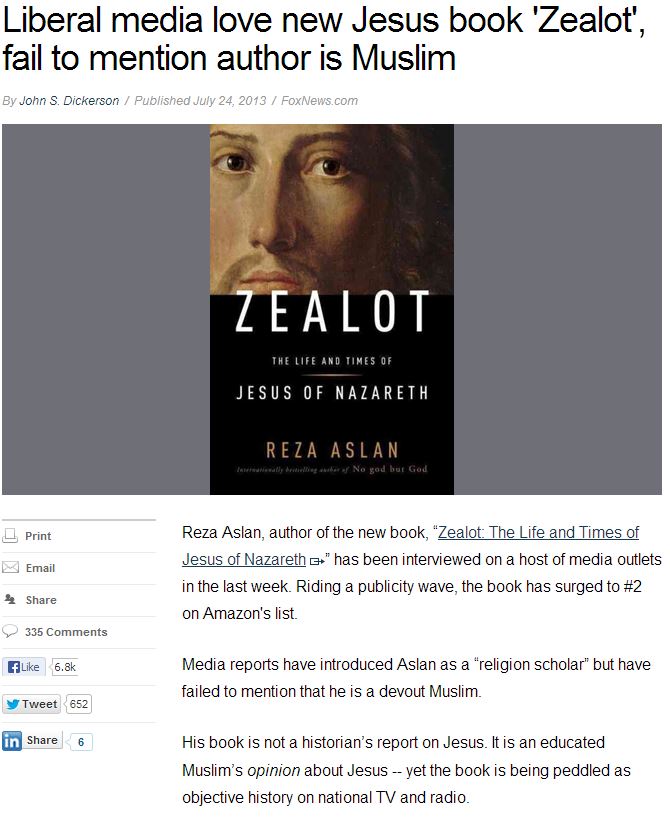There’s a lot to say about the coverage of Reza Aslan’s interview with Fox News.
http://www.youtube.com/watch?v=YY92TV4_Wc0
Andrew Kaczynski over at Buzzfeed covered the interview under the title “Is This The Most Embarrassing Interview Fox News Has Ever Done?” (I bet you can’t guess how he answers that particular question.) Amusement and outrage was evident on Twitter as well, where the #foxnewslitcrit hashtag has become popular in religious studies circles.
The most interesting part of this, to me, is Fox News host Lauren Green’s opening question: “You’re a Muslim, so why did you write a book about the founder of Christianity?” The logic of Green’s question seems to be that being a Muslim precludes one from studying Christianity. At the very least, it seeks to color with suspicion those Muslims who choose to study it. There’s much to be said about this, of course, and one of my colleagues Thomas Whitley already summed up much of what I’d like to say. So, too, did Imran Ali Malik:
What I find so striking about this story is how self-evidently normal the opposite situation is: Christian and/or “Western” scholars studying Islam and/or the “East.” An interrogation–or even any awareness–of these assumptions seems not to have taken place during the course of the interview. This makes it all the more ironic, given that this practice is something critical to the academic study of religion. It’s what J.Z. Smith, pulling from Shklovsky, refers to as “defamiliarization–making the familiar seem strange in order to enhance our perception of the familiar” (Smith 1982, xiii). This is something I work to accomplish in my classroom every semester.
Imran Ali Malik, referencing Karen Armstrong’s work on Muhammad, nails it. For many, that a white American Christian could write about Islam objectively is self-evidently true. For Aslan’s critics, then, strategically identifying him as a Muslim gives the game away. His credentials and skill sets related to historical inquiry on the subject matter little when his work can be dismissed with headlines like this:
No, that headline is not photoshopped. The whole article is worth reading, especially for the way in which it delegitimates Aslan without having to explain why, say, a Muslim couldn’t write a decent history of Christianity. The scare quotes around “religion scholar,” and the presumed mutual exclusivity of being both a scholar and a Muslim, speak volumes.
As Edward Said wrote over three decades ago, “I have been arguing that “the Orient” is itself a constituted entity, and that the notion that there are geographical spaces with indigenous, radically “different” inhabitants who can be defined on the basis of some religion, culture, or racial essence proper to that geographical space is equally a highly debatable idea” (Said 1978, 322).
The essentializing discourses problematized in Orientalism live on.


Leave a Reply